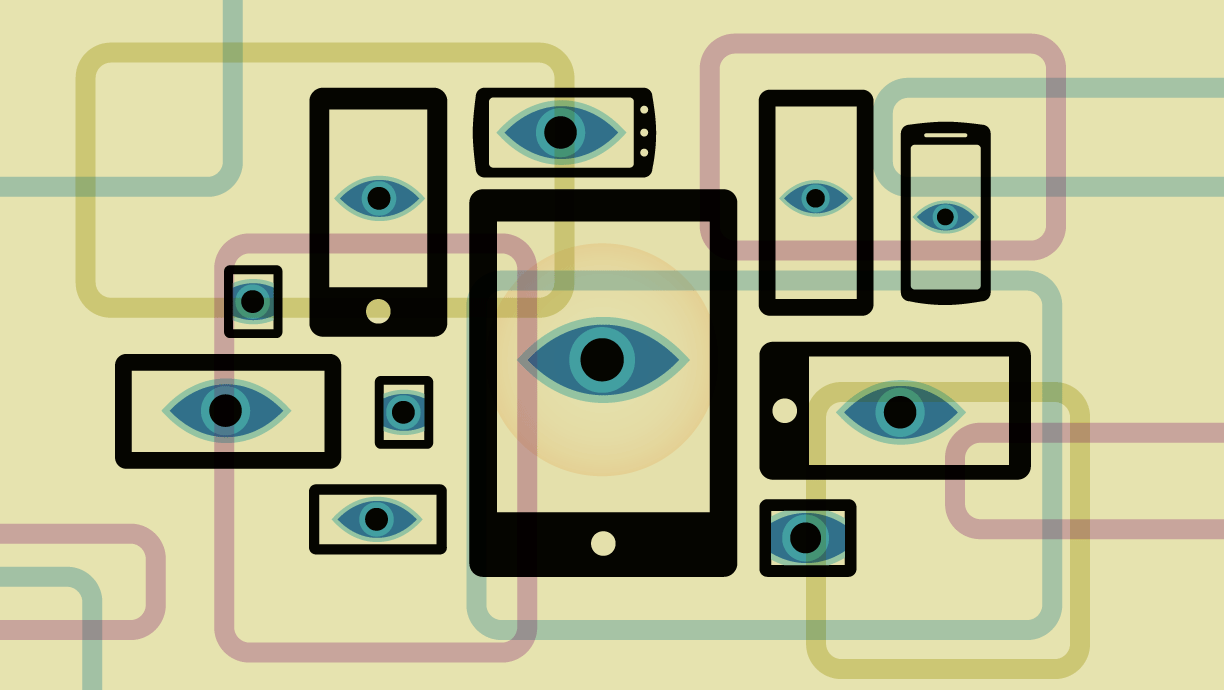2000 Mules is a movie which claims to expose election fraud with phone app location data. While these claims have already been thoroughly debunked, the movie also deserves condemnation for performing wildly invasive research on thousands of people’s location data without their consent or even knowledge. It is a reminder of our need to stop the industry of shady data brokers that enabled this massive privacy invasion.
In its attempt to demonstrate widespread fraud in the 2020 presidential election, 2000 Mules presents the research of True the Vote (TTV). TTV reportedly purchased 10 trillion geolocation data points from an unnamed data broker with the goal of finding a pattern of so-called “mules” that stuffed ballot boxes. The researchers claim that of the hundreds of thousands of people described in the location data, they found thousands of people who were physically present near two kinds of places – ballot boxes and unnamed nonprofits – and that this shows they were “mules.” (The actual number of people whose data was purchased may be much larger—a report by TTV claims the organization collected data from over 500,000 phones near ballot boxes in Atlanta, which is just a fraction of the total data they acquired.)
This business model of making extremely sensitive location data about the general public readily available for purchase must stop
Putting aside the logical flaws of TTV’s voter fraud claims, the very fact that they were able to buy this much personal location data on hundreds of thousands of people’s lives, over a span of many months leading to election day, is appalling. But this is the data broker business model working as intended: by vacuuming up geolocation data from thousands of smartphone apps, data brokers package and sell huge quantities of highly revealing location data to anyone willing to buy it. And TTV is hardly the only customer: the U.S. military, federal agencies, and federal law enforcement are all customers to geolocation data brokers. Recently, one data broker was even found selling the location data of people seeking reproductive healthcare, which soon could provide states with draconian anti-abortion legislation new digital evidence to identify and prosecute people who seek or provide abortion.
While data brokers often claim that geolocation data is “anonymized,” location data is never anonymous. If a phone’s location data shows where its owner sleeps at night or works during the day, it is very easy to find that owner’s name and address. Even TTV admits as much in a report describing their methodology. Yet, despite claiming that “TTV does not ‘unmask’ or ‘de-anonymize’ owner identities of the devices it tracks,” they handed over device data to the Georgia Bureau of Investigation in an (unsuccessful) attempt to spark a criminal investigation, released a partially-redacted list of device IDs in the same report, and have recently announced that they plan to “release it all” (possibly referring to location data). Further, an entire industry exists for the purpose of de-anonymizing phones based only on device ID.
Although the location data acquired by TTV is extremely invasive, it can also be inaccurate. TTV has claimed that it can “pinpoint” devices, and implied that it can show that people were interacting with individual ballot boxes using GPS data alone. But cell-phone GPS data is only accurate to within about 5 meters (15 feet) under ideal conditions, meaning there is no real way of knowing if a person actually engaged with a specific object within a given time window. Despite this lack of precision, the technology is still precise enough to be dangerous by revealing where a person sleeps at night, if they visit a lawyer's office or doctor's office, or if they've stopped commuting to work in the morning. And commercially-available location data is often marred with much more dramatic inaccuracies, like “teleporting” devices that appear to travel miles in a matter of seconds. Police use of this kind of data, through techniques like “geofencing,” frequently casts false suspicion on innocent people. Relying on commercial location data alone to allege ballot box stuffing is folly.
This is not even the first time an organization used location data to make public allegations of other people. Just last year, a Catholic priest was fired after an organization tracked his location and use of the app Grindr through commercially-available data. TTV’s privacy violating research is yet another demonstration that this data is easy to acquire, powerfully invasive, and can be used to harm real people.
This business model of making extremely sensitive location data about the general public readily available for purchase must stop, and stopping it will require both regulatory efforts as well as preventative measures on the side of mobile operating system developers. But there is something you can do right now to protect your data from being useful to data brokers and organizations like TTV: disable Ad ID tracking on your phone.










